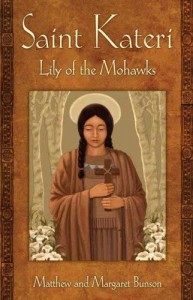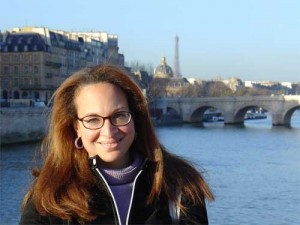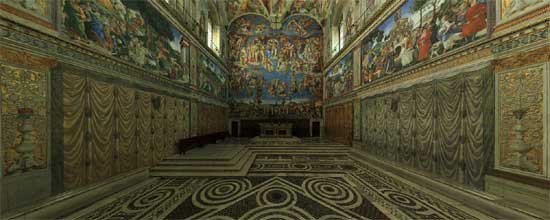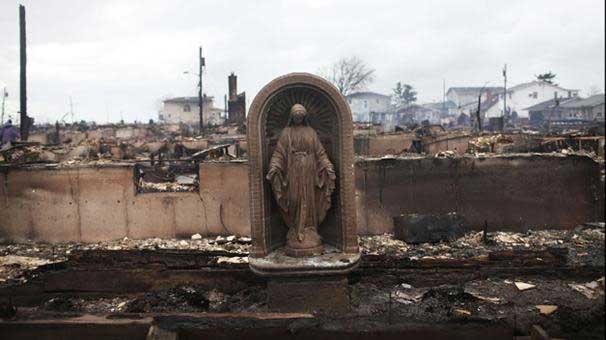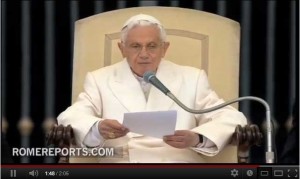Once again we are joined by the fantastic Dr. Matthew Bunson!  We discuss his new work which brings us the life of 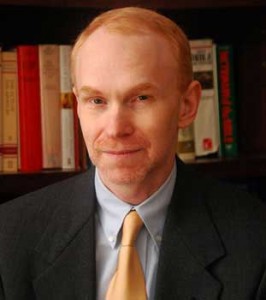 “St. Kateri: Lily of the Mohawks”.  The humble daughter of a Mohawk chief and a Roman Catholic mother, Kateri (named after St. Catherine of Siena) Tekakwitha lived a short life (she died at the age of 24). But she was such a powerful witness, so much so, that even the famed “black robe” Jesuit missionaries were awed  “by her perfection of the virtues, her mystical prayer life, and her total love for Christ.”  Her last words were: “Jesus, I love you.”  No one tells a story like Dr. Bunson, and he doesn’t fail to captivate this time when describing  the life of this remarkably holy woman.
“St. Kateri: Lily of the Mohawks”.  The humble daughter of a Mohawk chief and a Roman Catholic mother, Kateri (named after St. Catherine of Siena) Tekakwitha lived a short life (she died at the age of 24). But she was such a powerful witness, so much so, that even the famed “black robe” Jesuit missionaries were awed  “by her perfection of the virtues, her mystical prayer life, and her total love for Christ.”  Her last words were: “Jesus, I love you.”  No one tells a story like Dr. Bunson, and he doesn’t fail to captivate this time when describing  the life of this remarkably holy woman.
[powerpress]
You can find the book here
“Written by experienced and prolific authors Matthew and Margaret Bunson, St. Kateri: Lily of the Mohawks is the most definitive biography of Kateri Tekakwitha.”
Here is St. Kateri and Dr. Matthew Bunson featured on “Rome Reports”
Tags: osv, our sunday visitor
This entry was posted on Tuesday, November 13th, 2012 at 3:34 pm
You can follow any responses to this entry through the RSS 2.0 feed.
Episode 23- Regnum Novum: Bringing forth the New Evangelization through Catholic Social Teaching with Omar Gutierrez – We continue the study of the “Compendium of the Social Doctrine of the Church” Â Chapter 3 Section 1 & 2
– We continue the study of the “Compendium of the Social Doctrine of the Church” Â Chapter 3 Section 1 & 2
[powerpress]
CHAPTER THREE
THE HUMAN PERSON AND HUMAN RIGHTS
I. SOCIAL DOCTRINE AND THE PERSONALIST PRINCIPLE
II. THE HUMAN PERSON AS THE “IMAGO DEIâ€
a. Creatures in the image of God
b. The tragedy of sin
c. The universality of sin and the universality of salvation
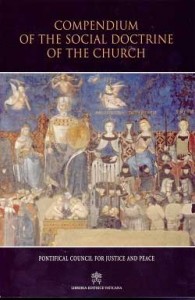
We live at a very special time. The confluence of many things has brought forth the clear need to be able to articulate the Social Teaching of the Catholic Church in a way that is accessible and applicable. This is not to be an effort where high-minded theories are to be bandied about. Rather, this is a time of opportunity wherein we can apply the Social Doctrine to the concrete so as to bring about a New Kingdom, a Revolution. – Omar G.
Also visit Omar’s “Discerning Hearts” page Catholic Social Teaching 101
Tags: catholic social teaching, New Kingdom, social doctrine, special time
This entry was posted on Tuesday, November 13th, 2012 at 2:53 pm
You can follow any responses to this entry through the RSS 2.0 feed.
Episode 7 -The Way of Mystery: The Eucharist and Moral Living– The Liturgy of the Word part 1 Christ entering us through language. The difference in our attitude of being an “audience” and being in an attitude of prayer. How the Word sets us free.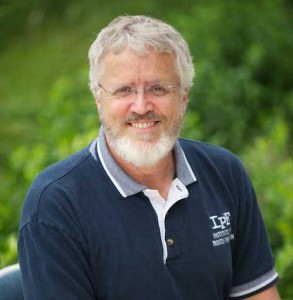
[powerpress]
Deacon James Keating, PhD, the director of Theological Formation for the Institute for Priestly Formation, located at Creighton University, in Omaha, is making available to â€Discerning Hearts†and all who listen, his series of programs entitled “The Way of Mysteryâ€.
 The Vatican II documents remind us that the spiritual journey is not made in a vacuum, that God has chosen to save us, not individually, but as The People of God. The Eucharist must help Christians to make their choices by discerning out of Christ’s paschal mystery. For this process to take place, however, Christians must first understand how the Eucharist puts them in touch with Christ’s passion, death, and resurrection, and what concrete implications being in touch with this mystery has for their daily lives.
The Vatican II documents remind us that the spiritual journey is not made in a vacuum, that God has chosen to save us, not individually, but as The People of God. The Eucharist must help Christians to make their choices by discerning out of Christ’s paschal mystery. For this process to take place, however, Christians must first understand how the Eucharist puts them in touch with Christ’s passion, death, and resurrection, and what concrete implications being in touch with this mystery has for their daily lives.
For more information on the “Institute of Priestly Formation†and for other material available by Deacon Keating, just click here
Don’t forget to pickup a copy of “Communion with Christ†, it is one of the best audio sets on prayer…ever!
Check out Deacon Keating’s “Discerning Heart†page
Tags: choices, creighton university, Deacon James Keating, prayer
This entry was posted on Tuesday, November 13th, 2012 at 2:41 pm
You can follow any responses to this entry through the RSS 2.0 feed.
USCCA25 Chapter 22 Sacramentals and Popular Devotions
[powerpress]
Archbishop Lucas offers insights on the US Catholic Catechism for Adults Chapter22:
Sacramentals dispose believers to receive the chief effects of the Sacraments. They are sacred signs that resemble the Sacraments in the sense that they signify spiritual effects that are obtained through the intercession of the Church. Sacramentals include blessings, actions such as processions, prayers such as the Rosary, and objects such as holy water, palms, ashes, candles, and medals.
The Church instituted sacramentals to sanctify certain ministries, states of life, and the variety of situations in which Christians are involved. Their use has been guided by bishops’ pastoral decisions in responding to specific needs that are particular to a given period of history or locality. They include a prayer, usually with a gesture such as the Sign of the Cross or the sprinkling of holy water.
The Most Reverend George J. Lucas leads the Archdiocese of Omaha.Â
For other episodes in the visit our Archbishop George Lucas page
This programs is based on:
More information can be found here.
We wish to thank the USCCB for the permissions granted for use of  relevant material used in this series.
Also we wish to thank Denise Wharton  for her vocal talents in this episode.
[ezcc]
Tags: popular devotions, sacramentals, united states catholic catechism for adults
This entry was posted on Tuesday, November 13th, 2012 at 2:36 pm
You can follow any responses to this entry through the RSS 2.0 feed.
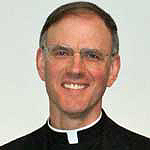 Episode 2  “What am I to do?†The Discernment of God’s Will in Everyday Decisions w/Fr. Timothy Gallagher.
Episode 2  “What am I to do?†The Discernment of God’s Will in Everyday Decisions w/Fr. Timothy Gallagher.
This episode offers a instruction on how important it is to allow God to guide us not only in the big discernments of life, but also the decisions we make everyday.
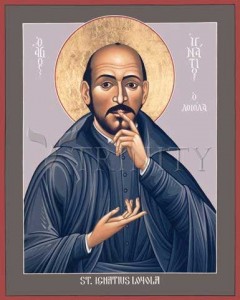
[powerpress]
Father Timothy M. Gallagher, O.M.V., was ordained in 1979 as a member of the Oblates of the Virgin Mary, a religious community dedicated to retreats and spiritual formation according to the Spiritual Exercises of St. Ignatius. Â Fr. Gallagher is featured on the EWTN series “Living the Discerning Life: Â The Spiritual Teachings of St. Ignatius of Loyola”.
For more information on how to obtain copies of Fr. Gallaghers’s various books and audio which are available for purchase, please visit  his  website:   frtimothygallagher.org
For the other episodes in this series check out Fr. Timothy Gallagher’s “Discerning Hearts†page
Tags: discernment, Father Timothy M. Gallagher, Timothy Gallagher
This entry was posted on Thursday, November 8th, 2012 at 2:49 pm
You can follow any responses to this entry through the RSS 2.0 feed.
(Vati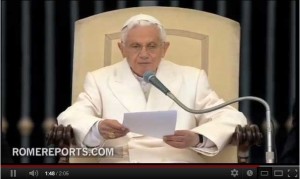 can Radio) What really satisfies man’s deepest desire? Is the desire for God absurd, irrational in today’s secularised world? How do we reach out to people who have lost their faith? To people who do not believe in God? How do we accompany them on their search for true good? These were the questions Pope Benedict XVI posed to 30 thousand people in St Peter’s Square for the Wednesday general audience, the third in his series for the Year of Faith.
can Radio) What really satisfies man’s deepest desire? Is the desire for God absurd, irrational in today’s secularised world? How do we reach out to people who have lost their faith? To people who do not believe in God? How do we accompany them on their search for true good? These were the questions Pope Benedict XVI posed to 30 thousand people in St Peter’s Square for the Wednesday general audience, the third in his series for the Year of Faith.
Listen:[powerpress]
The answer, Pope Benedict XVI said, lies in rediscovering the real meaning of human desire, ecstasy and love. In rediscovering our taste for the joys of life.
“We must believe that even in our era, seemingly reluctant to the transcendent dimension, that it is possible to open a path toward an authentic religious meaning of life, showing how the gift of faith is not absurd, it is not irrationalâ€
Below please find a Vatican Radio translation of Pope Benedict XVI’s general Audience catechesis, the third in his series on the Year of Faith:
Dear brothers and sisters,
The journey of reflection that we are making together this Year of Faith leads us to meditate today on a fascinating aspect of the Human and Christian experience: man carries within himself a mysterious desire for God. In a very significant way, the Catechism of the Catholic Church opens with the following consideration: “The desire for God is written in the human heart, because man is created by God and for God; and God never ceases to draw man to himself. Only in God will he find the truth and happiness he never stops searching for”(No. 27).
Such a statement, which even today in many cultural contexts seems quite acceptable, almost obvious, might instead appear as a provocation in the sphere of secularized Western culture. Many of our contemporaries could, in fact, argue that they do not feel such a desire for God at all. For large sectors of society He is no longer desired, expected, but rather a reality that leaves some indifferent and not even worth wasting one’s breath over. Actually, what we have defined as “desire for God†has not completely disappeared and still today, in many ways, appears in the heart of man. Human desire always tends towards certain tangible assets, which are often far from spiritual, and yet it is still faced with the question of what “the†good really is and as a result confront itself with something other than itself, something that man cannot create, but is called upon to recognize. What can really satisfy man’s desire?In my first encyclical, Deus caritas est, I tried to analyze how such dynamism is experienced in human love, an experience which in our era is more easily perceived as a moment of ecstasy, of going beyond oneself, as a place where man senses that he is being filled with a desire that is beyond him. Through love, men and women experience in a new way, thanks to one another, the grandeur and beauty of life and of reality. If what I experience is not a mere illusion, if I really want the good of the other as a path towards my own good, then I must be willing to de-centralize myself, to put myself at the service of the other to the point of surrendering myself. The answer to the question about the meaning of the experience of love thus passes through the cleansing and healing of the will, which is required by the very good we want for the other. We have to practise, train and even correct ourselves so that that good may be truly wanted. (more…)
Tags: pope benedict xvi, year of faith
This entry was posted on Wednesday, November 7th, 2012 at 2:17 pm
You can follow any responses to this entry through the RSS 2.0 feed.
From Vatican Radio:
It’s been 500 years since Michelangelo completed work on the celebrated frescos that adorn the ceiling of the Sistine Chapel. On the Eve of the feast of All Saints, the reigning pontiff, Pope Julius II, solemnly dedicated the monumental work.
Earlier this week, Pope Benedict XVI, following in the footsteps of his predecessor, celebrated Vespers in the Chapel to commemorate the occasion.
Vatican Radio’s Christopher Wells spoke with art historian and tour guide Dr. Elizabeth Lev about the significance of Michelangelo’s work. “In a world where people are always looking forward to the next new thing, and the next hot thing, and the next novelty, that there is still a place where people look backwards and they look in awe at a tradition and a manifestation of what is clearly faith and art, is really quite an amazing thing.â€
Dr. Lev speaks about the central focus of the ceiling, and its relevance for people today. “Michelangelo . . . reduced the story to the human figure. And you see God as an actor, God moving, God interested in that which He creates. He’s physically engaged in the act of creation. I think to begin with, to see a God that wants to be involved is already unbelievably hopeful to people.â€
The Sistine Chapel, she says, speaks to all people: “And then we see the centrality of the creation of man, and how important man is, and that, no matter who you are or where you come from, you can see yourself reflected in that ceiling . . . An innumerable number of people can look in that ceiling and see themselves reflected, and see themselves reflected as beautiful, as heroic, as extraordinary – which is what human beings are. And that makes the Sistine Chapel universal. But of course ‘universal,’ I believe, is the definition of Catholic . . .â€
Listen to the complete interview of Dr. Elizabeth Lev with Christopher Wells: [powerpress]
Tags: art, beauty, sistine chapel
This entry was posted on Tuesday, November 6th, 2012 at 4:21 am
You can follow any responses to this entry through the RSS 2.0 feed.
[powerpress]Msgr. Esseff recounts some of his experiences as he directed retreats for the 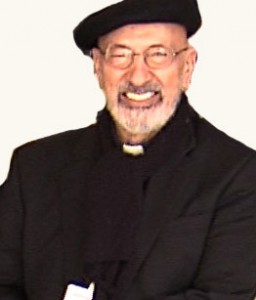 Missionaries of Charity Sisters in Italy and Spain. He speaks of his time in Rome during the Synod for the New Evangelization and the Canonization of the Saints on October 21. Be he also shares his experience of hearing about Hurricane Sandy for the first time at the airport on the way home and the subsequent tragedy that has followed in its wake. Msgr. Esseff offers his insights on this moment and the hope that is found in the teachings of Christ. He guides us through a meditation that helps us to see deeply into the heart of the person next to us.
Missionaries of Charity Sisters in Italy and Spain. He speaks of his time in Rome during the Synod for the New Evangelization and the Canonization of the Saints on October 21. Be he also shares his experience of hearing about Hurricane Sandy for the first time at the airport on the way home and the subsequent tragedy that has followed in its wake. Msgr. Esseff offers his insights on this moment and the hope that is found in the teachings of Christ. He guides us through a meditation that helps us to see deeply into the heart of the person next to us.
Tags: Hurricane Sandy, John Esseff, reflection, rome
This entry was posted on Monday, November 5th, 2012 at 6:25 pm
You can follow any responses to this entry through the RSS 2.0 feed.
I love this book…what a wonderful introduction on how the Communion of Saints can change our lives.  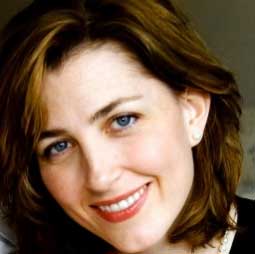 Colleen Carroll Campbell writes a beautiful memoir that not only chronicles the  important passages of life she’s traveled thus far, but she also shares the guidance and insight she has received from several “sister” saints she has met along the way…St. Teresa of Avila, St. Therese of Lisieux, St. Faustina, St. Teresa Benedicta of the Cross (Edith Stein), Bl. Teresa of Calcutta and, of course, the Queen and Mother of them all, The Blessed Virgin Mary.  This work is more than just a cataloging of the events of her life or facts about these incredible women, Colleen shares a compelling story that is truly a page turner.  It was a book that brought  great joy and peace to my heart; it helped me  to reflect on, and appreciate more fully, those wonderful members of the “Cloud of Witnesses” who have touched my life….what a true gift God has given us in the Communion of the Saints.  A  HIGHLY recommended book on all levels.
Colleen Carroll Campbell writes a beautiful memoir that not only chronicles the  important passages of life she’s traveled thus far, but she also shares the guidance and insight she has received from several “sister” saints she has met along the way…St. Teresa of Avila, St. Therese of Lisieux, St. Faustina, St. Teresa Benedicta of the Cross (Edith Stein), Bl. Teresa of Calcutta and, of course, the Queen and Mother of them all, The Blessed Virgin Mary.  This work is more than just a cataloging of the events of her life or facts about these incredible women, Colleen shares a compelling story that is truly a page turner.  It was a book that brought  great joy and peace to my heart; it helped me  to reflect on, and appreciate more fully, those wonderful members of the “Cloud of Witnesses” who have touched my life….what a true gift God has given us in the Communion of the Saints.  A  HIGHLY recommended book on all levels.
[powerpress]
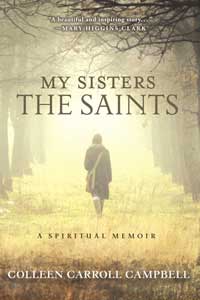 You can find the book here
You can find the book here
“Colleen Carroll Campbell has encountered most of the challenges confronting young women today—balancing dating, courtship, and marriage with a successful career, caring for a parent with Alzheimer’s, dealing with infertility—but she hasn’t faced these challenges alone. In My Sisters the Saints, Campbell introduces us to the women who helped her along the way – women like Teresa of Avila, Therese of Lisieux, Edith Stein, and, of course, the Blessed Virgin Mary. Completely contemporary and totally timeless, My Sisters the Saints is an engaging spiritual memoir and the perfect guidebook for anyone who is looking for a companion to help her navigate life’s sometimes difficult and confusing journey.†– Cardinal Timothy Dolan, Archbishop of New York
“In this fascinating memoir, Colleen Carroll Campbell recounts her discovery of kinship with six great women saints at crucial junctures on her journey through life. My Sisters the Saints is the story of how a thoroughly modern woman drew inspiration and strength from her spiritual ‘sisters’ while struggling with the mysteries of life, love, illness, and death in today’s world. This lovely and highly readable book will touch many lives.â€â€¨- Mary Ann Glendon, former U.S. Ambassador to the Vatican, Harvard Law professor, and President of the Pontifical Academy of Social Sciences
Tags: Cardinal Timothy Dolan, Colleen Carroll Campbell, image books, Mary Ann Glendon, women
This entry was posted on Monday, November 5th, 2012 at 1:58 pm
You can follow any responses to this entry through the RSS 2.0 feed.
Episode 6 -The Way of Mystery: The Eucharist and Moral Living– The Penitential Rite part 2 Are we afraid of silence, being alone with God, posture, and The domestic church.
[powerpress]
Deacon James Keating, PhD, the director of Theological Formation for the Institute for Priestly Formation, located at Creighton University, in Omaha, is making available to â€Discerning Hearts†and all who listen, his series of programs entitled “The Way of Mysteryâ€.
 The Vatican II documents remind us that the spiritual journey is not made in a vacuum, that God has chosen to save us, not individually, but as The People of God. The Eucharist must help Christians to make their choices by discerning out of Christ’s paschal mystery. For this process to take place, however, Christians must first understand how the Eucharist puts them in touch with Christ’s passion, death, and resurrection, and what concrete implications being in touch with this mystery has for their daily lives.
The Vatican II documents remind us that the spiritual journey is not made in a vacuum, that God has chosen to save us, not individually, but as The People of God. The Eucharist must help Christians to make their choices by discerning out of Christ’s paschal mystery. For this process to take place, however, Christians must first understand how the Eucharist puts them in touch with Christ’s passion, death, and resurrection, and what concrete implications being in touch with this mystery has for their daily lives.
For more information on the “Institute of Priestly Formation†and for other material available by Deacon Keating, just click here
Don’t forget to pickup a copy of “Communion with Christ†, it is one of the best audio sets on prayer…ever!
Check out Deacon Keating’s “Discerning Heart†page
Tags: choices, creighton university, Deacon James Keating, silence
This entry was posted on Monday, November 5th, 2012 at 1:32 pm
You can follow any responses to this entry through the RSS 2.0 feed.
USCCA24 Chapter 21 Â The Sacrament of Marriage Part 2
[powerpress]
Archbishop Lucas offers insights on the US Catholic Catechism for Adults Chapter21:
The couple needs to remember they have entered a relationship between persons. They come to one another with two loves, the one commanded by Jesus and the one caused by their attraction to each other. They are challenged to unite their personal love with Christ’s love. Their human love will survive more effectively the cultural challenges they face, as well as the psychological and economic ones, when it is merged with the powerful love of Christ, who wants them to succeed and whose divine grace is ever at their service.
United States Conference of Catholic Bishops (USCCB)
The Most Reverend George J. Lucas leads the Archdiocese of Omaha.Â
For other episodes in the visit our Archbishop George Lucas page
This programs is based on:
More information can be found here.
We wish to thank the USCCB for the permissions granted for use of  relevant material used in this series.
Also we wish to thank Matt Willkomb for his vocal talents in this episode.
[ezcc]
Tags: annulment, same sex marriage, united states catholic catechism for adults
This entry was posted on Monday, November 5th, 2012 at 1:26 pm
You can follow any responses to this entry through the RSS 2.0 feed.
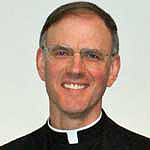 Episode 1  “What am I to do?†The Discernment of God’s Will in Everyday Decisions w/Fr. Timothy Gallagher.
Episode 1  “What am I to do?†The Discernment of God’s Will in Everyday Decisions w/Fr. Timothy Gallagher.
This episode offers an overall introduction of the series by offering examples, both big and small, and the overall tools that will be used to come to the discernment of God’s will in various situations. Â In particular, what do we do when deciding between “a morally good option and another apparently good option”?
[powerpress]
For other episodes in the series visit The Discerning Hearts “Discerning the Will of God†page
Father Timothy M. Gallagher, O.M.V., was ordained in 1979 as a member of the Oblates of the Virgin Mary, a religious community dedicated to retreats and spiritual formation according to the Spiritual Exercises of St. Ignatius. Â Fr. Gallagher is featured on the EWTN series “Living the Discerning Life: Â The Spiritual Teachings of St. Ignatius of Loyola”.
For more information on how to obtain copies of Fr. Gallaghers’s various books and audio which are available for purchase, please visit  his  website:   frtimothygallagher.org
For the other episodes in this series check out Fr. Timothy Gallagher’s “Discerning Hearts†page
Tags: discernment, Father Timothy M. Gallagher, Timothy Gallagher
This entry was posted on Thursday, November 1st, 2012 at 6:58 am
You can follow any responses to this entry through the RSS 2.0 feed.
From Vatican Radio:
[powerpress]
“In a world where individualism seems to regulate relationships between people, rendering them increasingly fragile, faith calls us to be people of God, to be Church, and bearers of God’s love and communion for all mankind”, said Pope Benedict XVI Wednesday as he continued his general audience catechesis on the ‘Act of Faith’, more familiarly known as the ‘Creed’. Emer McCarthy reports:
Despite foreboding skies and sharp temperatures, the audience was held in St Peter’s square. In off the cuff comments to the thousands who withstood the drizzle huddled under umbrellas to hear the Pope’s words, Benedict XVI noted ‘it could be worse’.
Last week the Pope had spoken of how we have seen that faith is something intensely personal: a gift of God which transforms and enriches our life. But, he asked this Wednesday: “If faith is of a purely personal, individual character? Does it only affect me personally? Do I live my faith alone?â€
In comments in Italian Benedict XVI said : “The answer is found in Baptism, when the priest asks the person to be baptized if he believes in God the Father, Jesus His only Son and the Holy Spirit. The “I do” with which we answer “is not the result of my solitary reflection, it is not the product of my own thoughts, but it is the result of a relationship, a dialogue in which there is a listening, and receiving and response; it is communicating with Jesus that takes me out of the “I” that is enclosed in on myself to open up to the love of God the Father. It is like a rebirth in which I find myself united not only Jesus, but also all those who have walked and walk on the same path; and this new birth, which begins with Baptism, continues throughout the course of my existence. I can not build my personal faith in a private dialogue with Jesus, because faith is given to me by God through a community of believers, the Church, and I a become part of the multitude of believers in a community that is not only sociological, but rooted in the eternal love of God. ”
Tags: nicene creed, pope benedict xvi, year of faith
This entry was posted on Wednesday, October 31st, 2012 at 5:15 am
You can follow any responses to this entry through the RSS 2.0 feed.
Episode 5 -The Way of Mystery: The Eucharist and Moral Living– The penitential rite of the mass, while not the pivotal point , it is one of the most important points of the mass, and key in our moral conversion…it’s about the crucifixion to sin, meeting evil with love.
, it is one of the most important points of the mass, and key in our moral conversion…it’s about the crucifixion to sin, meeting evil with love.
[powerpress]
Deacon James Keating, PhD, the director of Theological Formation for the Institute for Priestly Formation, located at Creighton University, in Omaha, is making available to â€Discerning Hearts†and all who listen, his series of programs entitled “The Way of Mysteryâ€.
 The Vatican II documents remind us that the spiritual journey is not made in a vacuum, that God has chosen to save us, not individually, but as The People of God. The Eucharist must help Christians to make their choices by discerning out of Christ’s paschal mystery. For this process to take place, however, Christians must first understand how the Eucharist puts them in touch with Christ’s passion, death, and resurrection, and what concrete implications being in touch with this mystery has for their daily lives.
The Vatican II documents remind us that the spiritual journey is not made in a vacuum, that God has chosen to save us, not individually, but as The People of God. The Eucharist must help Christians to make their choices by discerning out of Christ’s paschal mystery. For this process to take place, however, Christians must first understand how the Eucharist puts them in touch with Christ’s passion, death, and resurrection, and what concrete implications being in touch with this mystery has for their daily lives.
For more information on the “Institute of Priestly Formation†and for other material available by Deacon Keating, just click here
Don’t forget to pickup a copy of “Communion with Christ†, it is one of the best audio sets on prayer…ever!
Check out Deacon Keating’s “Discerning Heart†page
Tags: institute for priestly formation, the eucharist, the mass
This entry was posted on Monday, October 29th, 2012 at 6:35 am
You can follow any responses to this entry through the RSS 2.0 feed.
USCCA23 Chapter 21 Â The Sacrament of Marriage Part 1
[powerpress]
Archbishop Lucas offers insights on the US Catholic Catechism for Adults Chapter21:
The first effect of the Sacrament of Matrimony is the gift of the bond between the spouses. “The consent by which the spouses mutually give and receive one another is sealed by God himself†(CCC, no. 1639). “The marriage bond has been established by God himself in such a way that a marriage concluded and consummated between baptized persons can never be dissolved†(CCC, no. 1640).
United States Conference of Catholic Bishops (USCCB)
The Most Reverend George J. Lucas leads the Archdiocese of Omaha.Â
For other episodes in the visit our Archbishop George Lucas page
This programs is based on:
More information can be found here.
We wish to thank the USCCB for the permissions granted for use of  relevant material used in this series.
Also we wish to thank Matt Willkomb for his vocal talents in this episode.
[ezcc]
Tags: marriage, united states catholic catechism for adults
This entry was posted on Monday, October 29th, 2012 at 6:30 am
You can follow any responses to this entry through the RSS 2.0 feed.

